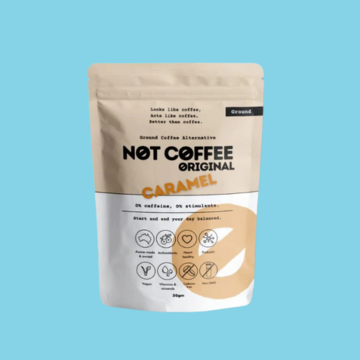Written By  Go Vita
Go Vita
Unlocking the Power of Probiotics for Your Gut Health
Probiotics are live bacteria and yeasts that are beneficial for your health, particularly your digestive system.
While it’s common to associate bacteria with illness, it’s important to recognize that probiotics are the “good” bacteria that help maintain balance in your gut.
Our bodies host trillions of bacteria, both beneficial and harmful. A healthy balance of gut flora is crucial for digestion, immune function, and even mental well-being. When this balance is disrupted—due to factors like stress, poor diet, or antibiotic use—probiotics can play a vital role in restoring it.
The Gut-Health Connection
Understanding why gut health matters is key. Your gut functions as a command centre for digestion and plays a significant role in overall health.
A well-functioning gut aids in nutrient absorption, supports a robust immune system, and can even influence your mood. Research suggests that gut health and mental health are closely linked, reinforcing the idea that “listening to your gut” is more than just a saying—it’s grounded in science!
Types of Probiotics
Numerous probiotic strains provide distinct benefits that contribute to a balanced gut microbiome and overall health. Including a variety of these probiotics in your diet can enhance gut health and improve digestive function. Each of these strains plays a unique role in fostering a healthy gut microbiome and overall well-being. When selecting probiotics, it’s essential to check the label for specific strains and their associated benefits, as not all probiotics are created equal.
It's important to consult with a healthcare professional before beginning any new supplements to ensure they align with your individual needs.
Well-researched strains include:
Lactobacillus plantarum, which helps alleviate symptoms of irritable bowel syndrome (IBS) and improves nutrient absorption.
Lactobacillus rhamnosus is effective in preventing diarrhea and supporting immune function.
Saccharomyces boulardii, a beneficial yeast, is recognized for its ability to combat antibiotic-associated diarrhea and promote gut integrity.
Incorporating Probiotics Into Your Diet
Try incorporating probiotics into your diet, there are many delicious options!
1. Yogurt: Choose brands that advertise “live and active cultures.” Greek yogurt is also a great source of protein.
2. Kefir: This fermented drink is similar to yogurt but offers a tangy flavour and a creamy texture, packed with probiotics.
3. Sauerkraut and Kimchi: These fermented vegetables add flavour and crunch to your meals while delivering beneficial probiotics.
4. Miso: A staple in Japanese cuisine, miso soup is an excellent way to incorporate probiotics into your diet.
5. Probiotic Supplements: If fermented foods aren’t to your taste, probiotic supplements are a convenient alternative. Just be sure to select a reputable brand.
How Much Should You Consume?
While there’s no one-size-fits-all answer, incorporating a variety of probiotic-rich foods into your daily meals can be highly beneficial. Consistency is key—make it a regular part of your routine, and your gut will appreciate it!
Listening to Your Body
It’s important to note that everyone’s body is different. Some individuals may notice immediate benefits, while others may require time to feel the effects. Pay attention to how your body responds to probiotics, and if you experience any discomfort, consult with a healthcare professional.
Probiotics can be a valuable addition to your health regimen, promoting a happy gut and enhancing your overall well-being. So, whether you enjoy yogurt with your breakfast, add kimchi to your stir-fry, or sip on some kefir, your gut will thank you!
Information presented is for information purposes only and is not intended to replace advice or treatment from qualified healthcare professionals. The information is not intended to treat or diagnose. Always consult your healthcare professional before taking nutritional or herbal supplements. If you are pregnant, breastfeeding, have any allergies or diagnosed conditions, or are taking prescription medications, always consult your healthcare professional before taking nutritional or herbal supplements.
Binge Read on these

Christmas Gift Ideas

Refreshing Cranberry Spritzer

Gearing Up for a Sober Summer

Go Mag Issue 75
Discover the latest issue of Go Mag – Issue 75, your go-to guide for natural health, wellbeing...

Christmas Gift Ideas

Refreshing Cranberry Spritzer

Gearing Up for a Sober Summer

Go Mag Issue 75
Discover the latest issue of Go Mag – Issue 75, your go-to guide for natural health, wellbeing...

